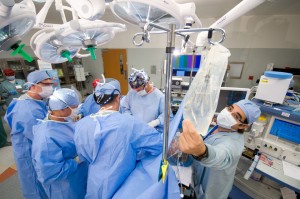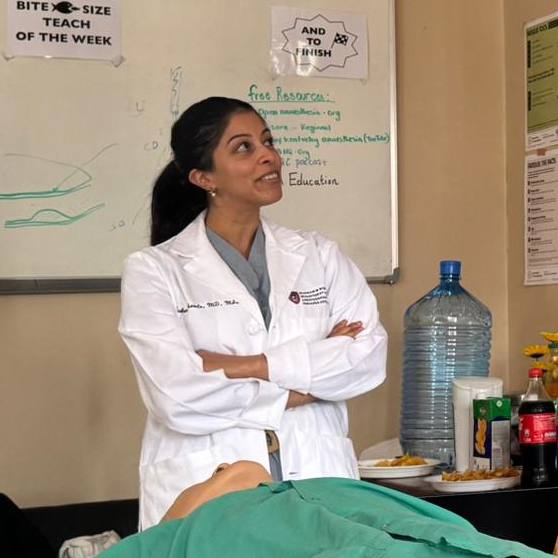-
Saving Lives by Reducing Surgical Site Infections
Mayo Clinic and six other U.S. health care systems avoided approximately 135 surgical site infections and saved more than $3.7 million dollars through an improvement project  directed by the Joint Commission Center for Transforming Healthcare in collaboration with the American College of Surgeons. Surgical site infections (SSIs) are a major cause of preventable patient injury, prolonging hospitalizations and increasing costs. The seven health care systems volunteered to systematically address SSIs in colorectal surgery, and share their knowledge and recommendations to reduce this common adverse event.
directed by the Joint Commission Center for Transforming Healthcare in collaboration with the American College of Surgeons. Surgical site infections (SSIs) are a major cause of preventable patient injury, prolonging hospitalizations and increasing costs. The seven health care systems volunteered to systematically address SSIs in colorectal surgery, and share their knowledge and recommendations to reduce this common adverse event.
News release: Surgical Site Infections
“Reducing surgical site infections is a very real challenge, but one that must be addressed if we want to make health care more reliable in terms of patient safety,” says Mark R. Chassin, M.D., president, the Joint Commission. “These seven organizations are leading the way in finding specific solutions to the complex problem of surgical site infections.”
Mayo Clinic outlines its experience with this project in a new article published by the Journal of the American College of Surgeons. The paper details how team members cut the overall colorectal SSI rate from 9.8 percent in 2009–2010 to 4.0 percent in one year after implementation of the SSI reduction program. The multi disciplinary team designed and implemented a bundle of interventions across the entire surgical episode from preoperative preparation, intraoperative, postoperative management and postdismissal care. Some simple interventions included:
- Patients showering with an antiseptic cleanser the day before and the day of surgery
- Proper selection, dosing, re-dosing and discontinuation of antibiotics
- Staff changing surgical gloves and using fresh instruments before closing the incision
- Maintaining the sterile surgical dressing in place for 48 hours
- Daily patient cleaning with antiseptic cleanser after dressing removal
"Mayo Clinic is committed to collaborative innovation that will create higher quality, lower cost health care for our patients and for all people,” says John Noseworthy, M.D., president and CEO of Mayo Clinic. “This project is an example of the outstanding work that teams across the country are doing to lead change and quality improvement.”







